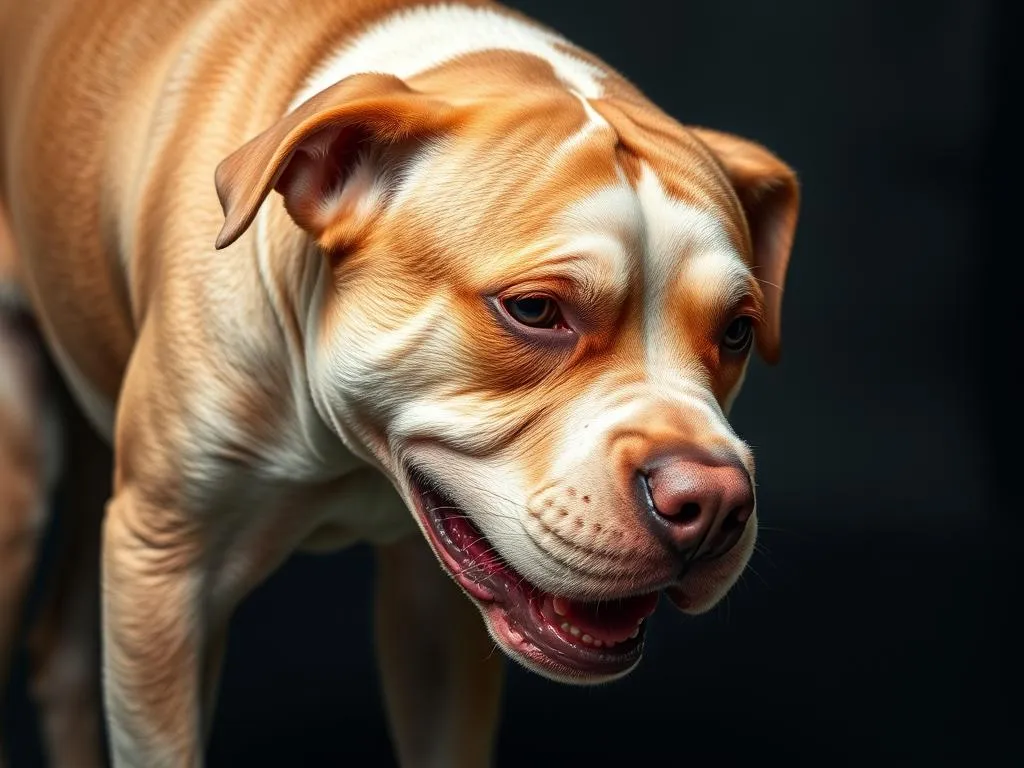
Bowel obstruction in dogs is a serious condition that demands immediate attention from pet owners. Understanding what bowel obstruction is, recognizing the symptoms, and knowing how to respond can save your dog’s life. This article aims to provide a comprehensive overview of bowel obstruction, from its causes and symptoms to diagnosis, treatment options, and prevention strategies.
Understanding Bowel Obstruction
Definition of Bowel Obstruction
Bowel obstruction refers to a blockage in the intestines that prevents the normal passage of food, fluids, and gas. This blockage can occur in various forms and can be classified into two main types:
- Complete obstruction: This occurs when the intestine is entirely blocked, preventing any material from passing through.
- Partial obstruction: In this case, some material can still pass, but the flow is significantly hindered.
Both types can lead to severe complications if not addressed promptly.
Causes of Bowel Obstruction in Dogs
Several factors can lead to bowel obstruction in dogs, including:
- Common physical causes:
- Foreign objects: Dogs are notorious for swallowing items like toys, bones, and clothing.
- Tumors: Growths in the intestinal tract can create blockages.
-
Strictures: Scarring from previous surgeries or infections can narrow the intestines.
-
Physiological causes:
- Intestinal torsion: Also known as bloat, this condition causes the stomach to twist and can obstruct blood flow.
-
Hernias: Portions of the intestine can protrude through the abdominal wall or into another cavity, causing an obstruction.
-
Lifestyle factors:
- Diet: Certain diets high in fat or fiber may contribute to the risk of obstructions.
- Eating habits: Dogs that eat too quickly or have access to non-food items are at higher risk.
Symptoms of Bowel Obstruction
Recognizing the symptoms of bowel obstruction in dogs can lead to early diagnosis and treatment, which is crucial for recovery.
Early Warning Signs
Some of the initial signs that may indicate a bowel obstruction include:
- Loss of appetite: A sudden disinterest in food can be one of the first signs of trouble.
- Vomiting: Frequent vomiting, especially if it occurs after eating, can indicate an obstruction.
- Lethargy: A noticeable decrease in energy or activity levels may signal discomfort or illness.
- Abdominal pain or bloating: Dogs may exhibit signs of discomfort, such as whining or a tense abdomen.
Severe Symptoms
If the condition progresses, more severe symptoms may manifest, including:
- Inability to defecate: A dog that cannot pass stool may be experiencing a serious blockage.
- Diarrhea: Some dogs may have diarrhea, sometimes with blood, despite a blockage.
- Changes in behavior: Restlessness, hiding, or pacing can indicate distress.
- Signs of shock: Rapid heart rate and pale gums are emergency signs that require immediate veterinary attention.
Diagnosis of Bowel Obstruction
If you suspect your dog has a bowel obstruction, a thorough veterinary examination is essential.
Veterinary Examination
During a veterinary visit, the veterinarian will perform a comprehensive physical exam. They may check for:
- Abdominal pain or sensitivity
- Distention or swelling of the abdomen
- Dehydration signs, such as dry gums
Veterinarians may also ask specific questions regarding your dog’s symptoms, eating habits, and recent activities to gather more information.
Diagnostic Tests
To confirm a diagnosis of bowel obstruction, several tests may be performed:
- X-rays: Radiographs can help visualize the intestines and detect any blockages.
- Ultrasound: This imaging technique provides a more detailed view of the abdomen and can help identify the location and cause of the obstruction.
- Blood tests: These tests assess overall health and can indicate dehydration or infection.
- Endoscopy: In certain cases, an endoscope may be used to visualize and potentially remove foreign objects.
Treatment Options
The treatment for bowel obstruction in dogs varies based on the severity and cause of the obstruction.
Non-Surgical Treatments
In cases of mild obstruction or if surgery is not immediately necessary, non-surgical treatments may be considered:
- Dietary management: A vet may recommend a special diet to help ease the obstruction. This could include a bland diet or easily digestible food.
- Hydration: Ensuring your dog stays hydrated is crucial, especially if vomiting is present.
- Medication: Anti-nausea medications and pain relief can help manage your dog’s discomfort.
Surgical Interventions
When a bowel obstruction is severe or does not resolve with conservative measures, surgery may be required:
- Exploratory surgery: This is performed to identify the cause of the blockage and assess the health of the intestines.
- Foreign object removal: If a foreign body is causing the obstruction, it will be surgically removed.
Post-Treatment Care
After treatment, monitoring your dog’s recovery is essential. Key aspects of post-treatment care include:
- Dietary restrictions: Follow your vet’s recommendations regarding food intake post-surgery.
- Activity limits: Restrict vigorous activity during recovery to prevent complications.
- Signs to watch for: Observe for any signs of complications such as continued vomiting, lethargy, or changes in appetite.
Prevention Strategies
Preventing bowel obstruction is possible with proactive measures.
Dietary Considerations
To minimize the risk of obstructions, consider these dietary practices:
- Best practices for feeding: Feed your dog high-quality, balanced food appropriate for their age and size.
- Foods to avoid: Keep potentially dangerous items, like bones, small toys, and human foods, out of reach.
Safe Environment
Creating a dog-proof environment can significantly reduce the risk of bowel obstruction:
- Importance of dog-proofing: Remove small objects, toxic plants, and hazardous materials from areas your dog can access.
- Keeping small objects out of reach: Regularly check your home for items that your dog could swallow.
Regular Vet Check-Ups
Routine veterinary visits are crucial for early detection of potential issues:
- Importance of routine veterinary visits: Regular check-ups can help identify health concerns before they become serious.
- Early detection of potential issues: Discuss any changes in behavior or eating habits with your vet promptly.
Frequently Asked Questions (FAQs)
Can all dogs get bowel obstructions?
Yes, any dog can experience a bowel obstruction, but certain breeds and individual characteristics may increase their risk.
What breeds are more prone to bowel obstructions?
Breeds with a tendency to ingest foreign objects or those with a history of gastrointestinal issues, such as Labrador Retrievers and Dachshunds, may be more susceptible.
How quickly should I seek veterinary help?
If you notice any signs of a bowel obstruction, such as vomiting or inability to defecate, seek veterinary assistance immediately. Time is critical.
What is the long-term outlook for dogs with bowel obstruction?
With prompt treatment, many dogs recover well from bowel obstruction. However, the long-term outlook depends on the underlying cause and the dog’s overall health.
Conclusion
Awareness of bowel obstruction in dogs is crucial for pet owners. Recognizing symptoms early and seeking veterinary advice can lead to better outcomes and potentially save your dog’s life. Practicing responsible dog ownership through preventive care, a proper diet, and regular veterinary check-ups can help minimize the risk of this serious condition. Make it a priority to understand your dog’s health needs and act promptly at the first sign of trouble.









